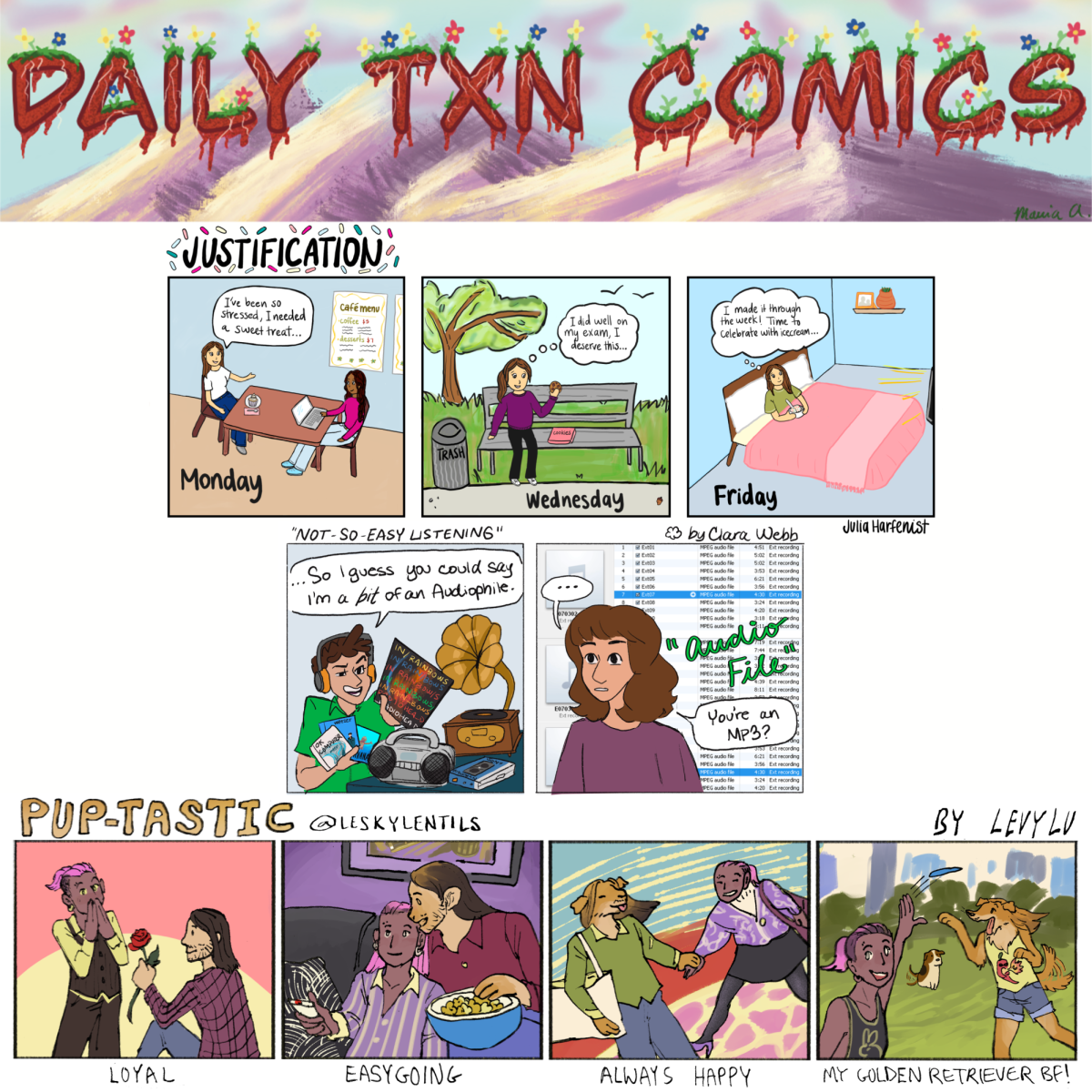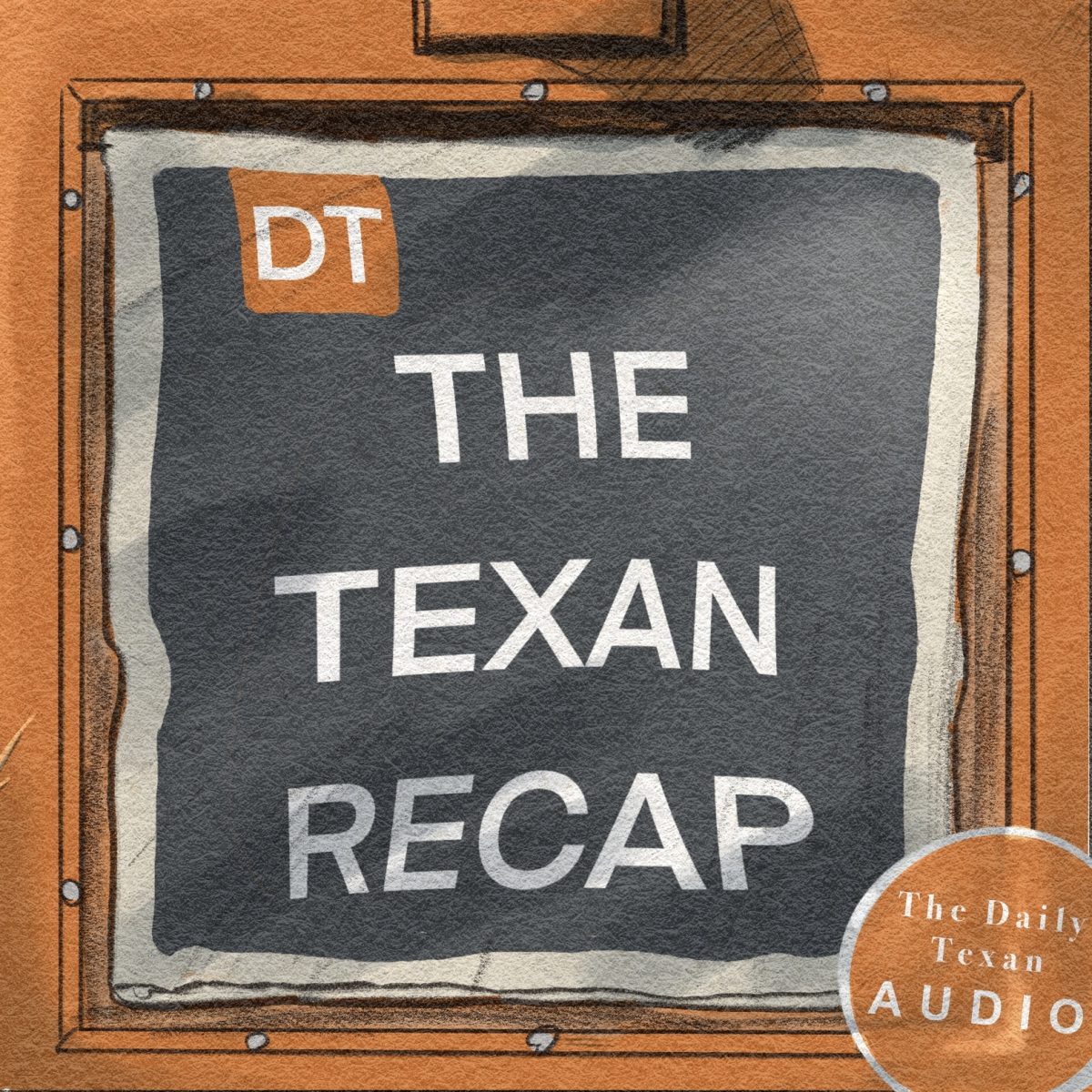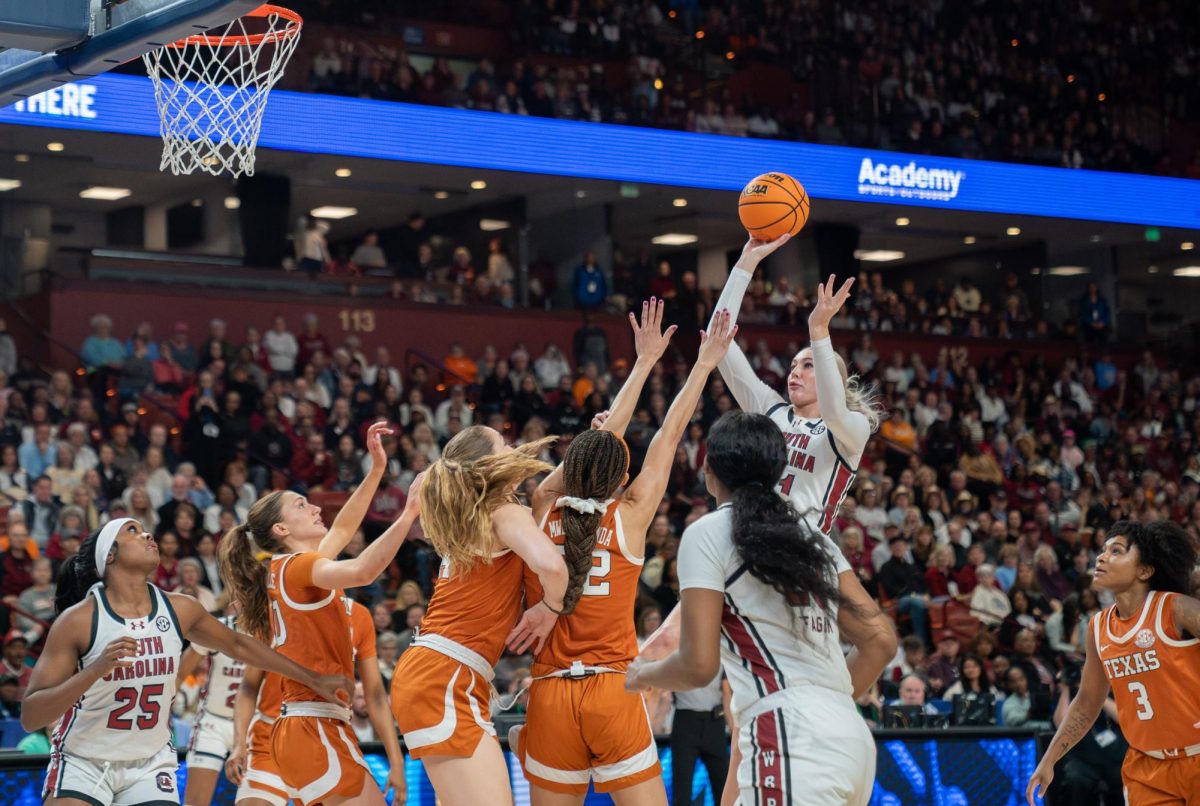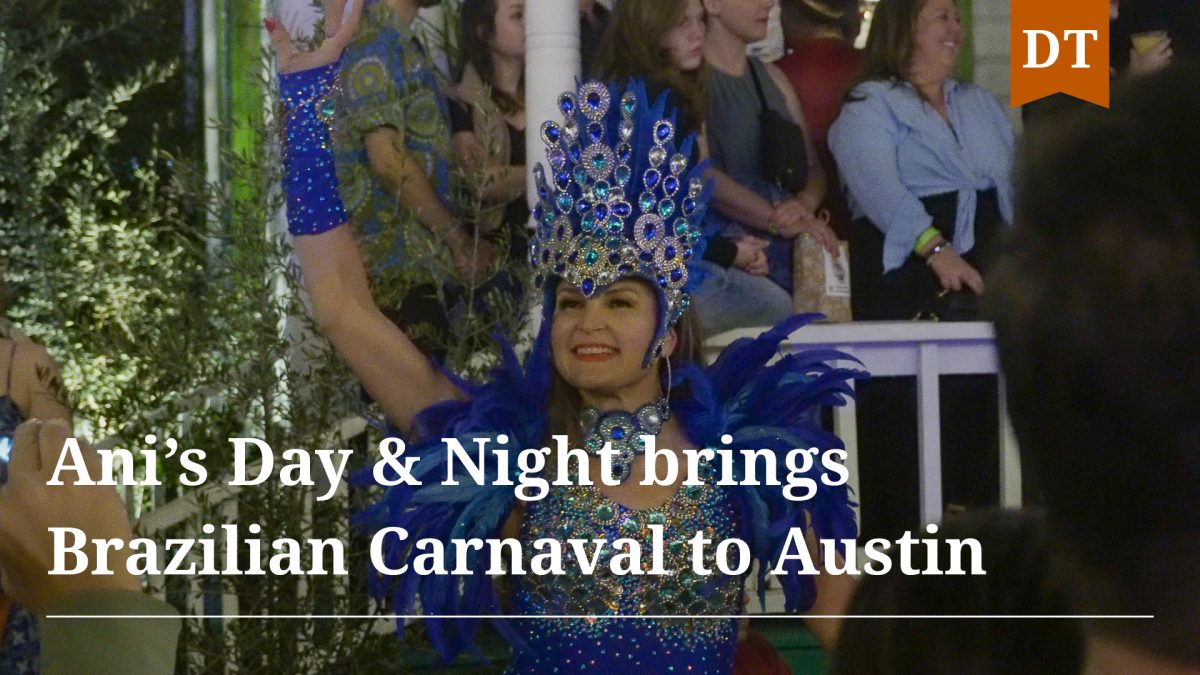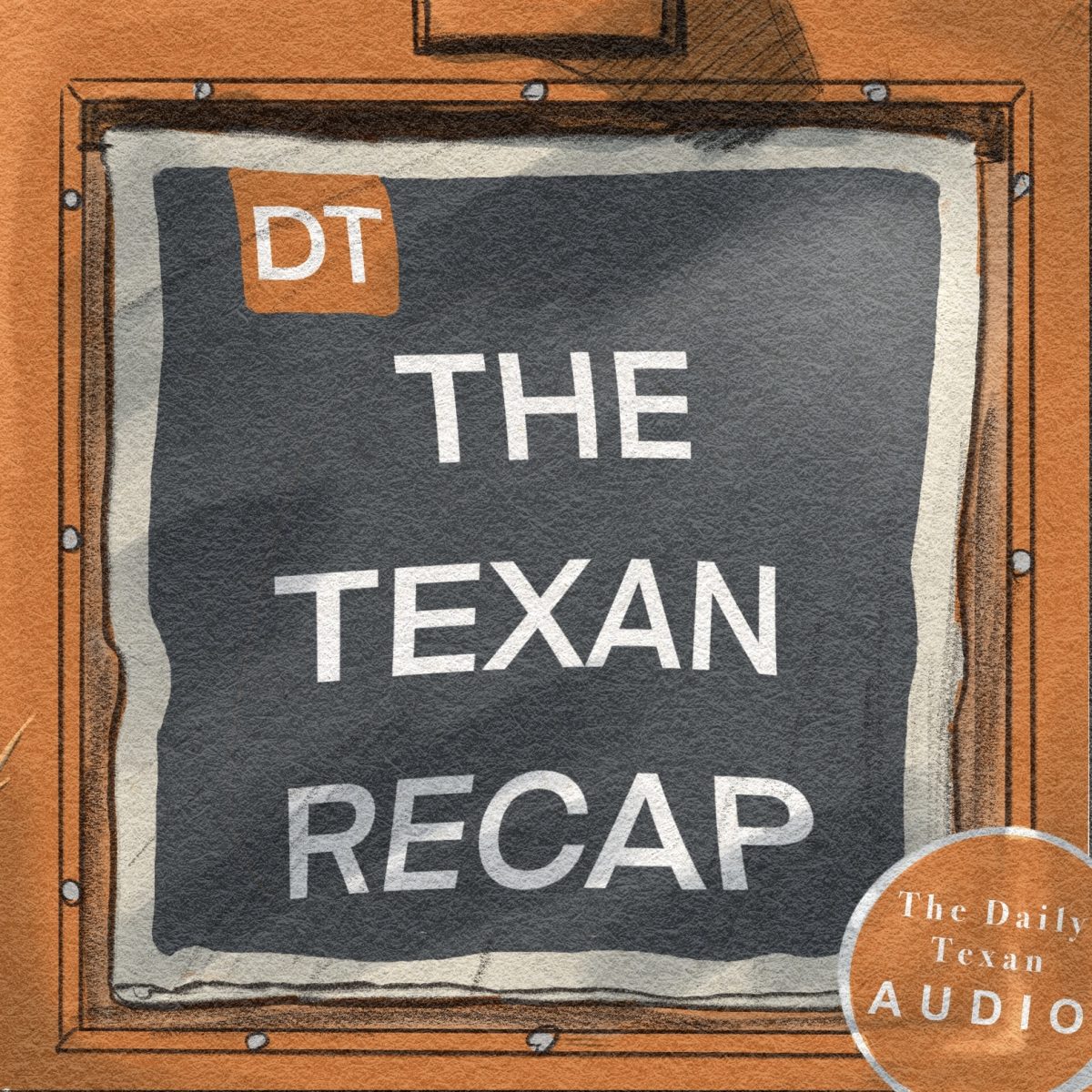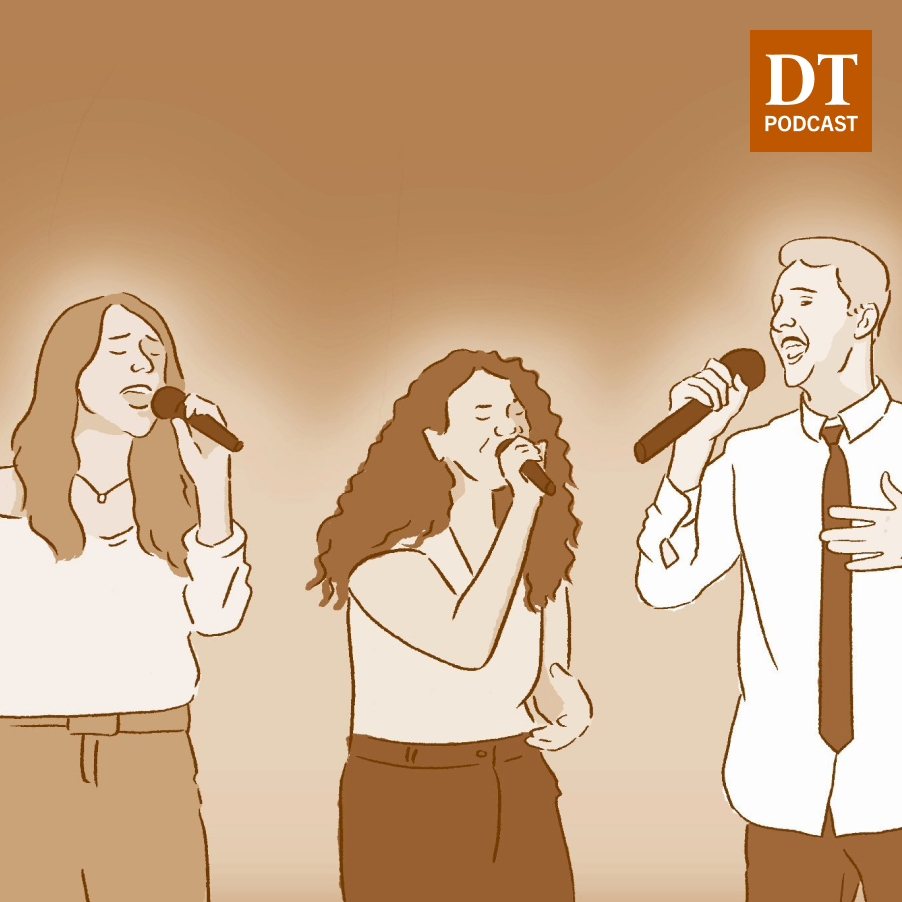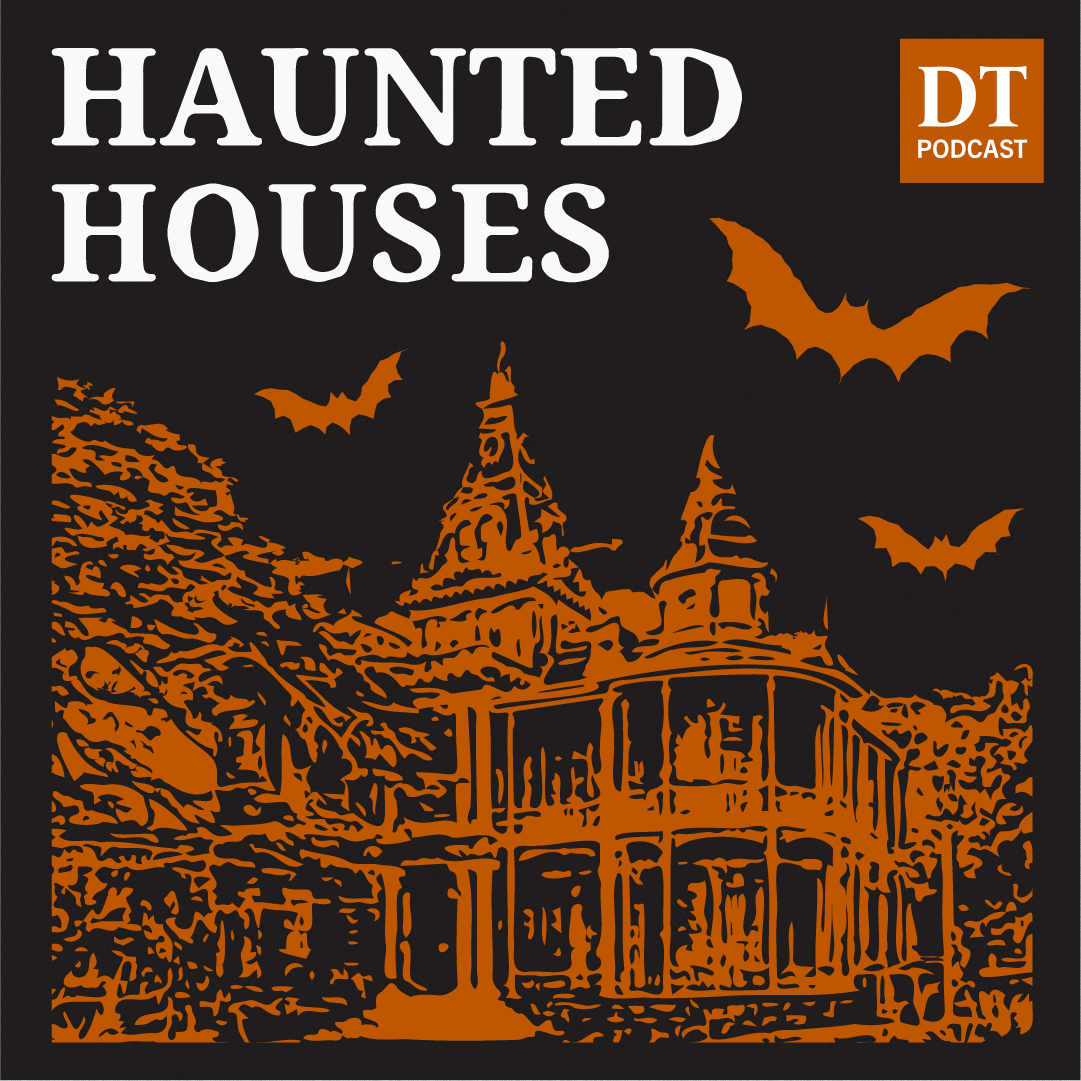Editor’s note: This podcast was originally uploaded to Spotify on Oct. 28, 2023.
Audio producer Jocelyn Kovach explores UT’s ¡Celebracion! and La Discoteca Hispanic Heritage Month events. Listen to hear about the significance of Hispanic Heritage Month on campus and beyond.
Reported and produced by Jocelyn Kovach. Cover art is by Emma George. Music is from the MACC events.
[reggaeton music from La Discoteca]
Jocelyn Kovach: Hispanic Heritage Month is celebrated annually in the United States from September 15th to October 15th as a recognition of the influence Latin and Hispanic culture has had on our nation. This year at the University of Texas, the Mexican American Culture Committee – or MACC – kicked off Hispanic Heritage Month with their annual ¡Celebracion! Event, a time to recognize various Latin American countries gaining independence.
Stefania Alarcon: This was my first event my freshman year, and I kind of showed up just expecting, I want to see other people that kind of look like me, and maybe grew up the same way I did. Because I was just so far away from home that I didn’t know where to find my community, especially growing up in a place where it was predominantly Hispanic. So coming here made me feel a little more welcome not only to UT, but to my place in the greater community.
Jocelyn: That was the Max Chair of MACC, Stefania Alarcon, a third-year Radio/Television/Film student at UT. The MACC was created to represent a diverse environment that celebrates the traditions and cultures of Latin America. The organization invited Hispanic culture student organizations to table and share information about their purposes and events at Celebracion.
Stefania: Last year, we started incorporating a little more bringing other Latin, Latino Latina committees to kind of table and I think we had two or three last year and this year we wanted to double that. So we really want to give a platform for everyone in the community. Maybe they’re not necessarily interested in our committee, but they can find another one that fits their lifestyle a little better.
[sounds of people dancing in the ballroom]
Jocelyn: People of all backgrounds were welcome to attend this event and get a broader knowledge of why we celebrate Hispanic Heritage. Junior Reah Coral described how she was excited to see what organizations would be presenting and how necessary she thinks it is to be exposed to different cultures.
Reah Coral: Our country, our state, our campus is very diverse. You can’t be isolated in your own culture and your own beliefs. You need to expand yourself. You need to open yourself to other perspectives and other cultures. And that’s how you become culturally competent. Basically, it’s just exposure.
Jocelyn: The MACC also held an event during Hispanic Heritage Month called La Discoteca. Previously Bailando, it’s an event for students to come and dance as a stress outlet.
Stefania: Previously, it was known as Bailando, where we would bring a band either locally from Austin or Texas, and then we would have Texas Latin Dance, come teach a lesson. But we decided to revamp it a little bit, and we saw that a lot of our generation really enjoys reggaeton music, kind of dance club music. And we wanted to bring that to campus in the most appropriate way possible, of course. So we’re collaborating with another E&E committee called Headliners. And they bring concert related events to campus. The new chair and I have just been talking about, we want to make this new and exciting for people, what’s the way we can do it? Naming it La Discoteca, straight up just what the name is, is what the event is. And so yeah, we just want to bring a local, I’m not sure if she’s their local or not, but a DJ for students to enjoy and just relax from dancing overall. Just provide a space where they can feel like I can have fun at school and it doesn’t have to be somewhere else.
Jocelyn: Students came in groups to La Discoteca to celebrate their culture through dance. Though less students attended this event, it was still an exciting reggaeton-inspired night. Deyanira Hernandez, MACC Membership Officer, shared how events like this remind her of her culture.
Deyanira Hernandez: This event has been really fun to put on. I mean, it has barely started. But it just reminds me of growing up, and we’d always have these quinceaneras and we’d have big parties and big, loud music. I used to fall asleep to this music at like 8 p.m. Because my parents would take me to these loud parties when I was six. And so it’s funny.
[reggaeton music]
Jocelyn: Hispanic Heritage Month is about celebrating those who have immigrated from Mexico as well as those from all over South America. It recognizes the influence of people from different backgrounds celebrating together.
Dr. Rachel González-Martin: What’s important about it, at least from the perspective of a Latino Studies faculty member, is it creates a visibility of the diverse populations in the US, and particularly focusing on U.S., Hispanic or Latino origin people.
Jocelyn: That was Dr. Rachel González-Martin, a Folklorist and an Associate Professor of Mexican-American and Latina/o Studies at the University of Texas at Austin.
Dr. González-Martin: There’s a whole swath of communities from all across central South America. Different communities that now call the US home, and whose cultures, languages, traditions, food, have all become part of our experience socially and culturally. And so Hispanic Heritage Month or Latino/Latinx Heritage Month, is sort of a reminder and a celebration.
Jocelyn: Hispanic Heritage representation originally started back in 1968 as a week of remembrance. It wasn’t until 1987 that U.S. Representative Esteban E. Torres proposed it cover a 31-day period. With Costa Rica, El Salvador, Guatemala, Honduras and Nicaragua all declaring their independence on September 15th, it became the first designated day of the celebratory month starting in 1988
Dr. González-Martin: It definitely was around this time where the political rhetoric much like now, heavily focused on immigration, but was also coming down from a republican government at the time saying, no, no, we need to fix this somehow. So in this moment, IRCA became the thing. And to complement that was we’re going to be proud of this community of people who are joining us who are part of our community, not just folks with legal paperwork, right? And so I think that’s a very unique moment.
Jocelyn: As Dr. Gonzalez addressed, IRCA, or the Immigration Reform and Control Act of 1986 made it illegal to knowingly hire undocumented immigrants but also legalized most undocumented immigrants who had come prior to 1982.
Dr. González-Martin: I think it’s actually particularly important in times when the public discourse around Latino communities is heavily negative, for instance, under the Trump administration, or in general with questions about like, quote, unquote, illegal immigration, or the crimes of poverty, or just in general, these, these racialized ideologies are on different social experiences, it is an important reminder that that’s not the only characterization of Hispanic people or Latino people.
Jocelyn: Dr. Gonzalez encourages students to explore other cultures and enrich their education through foreign studies courses.
Dr. González-Martin: We have a variety of courses that go from learning about cultural practices, and like their politics and Latino folklore, thinking about Latino history, thinking about Chicana feminism, thinking about social movements, check out the catalog, because Hispanic Heritage Month for most of us is all year long. So the idea if this is a moment where you say, I have an interest. There’s something in you that sparks that I like this conversation, then understand that some of us live it all year, and you can learn quite a bit and you don’t have to be Hispanic or Latino. I tell a lot of people, you know, part of this is, if you grew up in Texas, or you grew up around a Hispanic community, it might just be something that you enjoy being around and learning about or you have cousins or stepfamily or uncle’s, especially in a place like Texas. This can be part of your family, regardless of how other people identify you. So come to the class, come figure out how you fit into the story, and then share it with other people.
[reggaeton music]
Jocelyn: This episode was a production of The Daily Texan Audio Department. It was reported and produced by me, Jocelyn Kovach. If you like this episode, make sure you subscribe to The Daily Texan on your streaming platform of choice and follow us on Twitter @texanaudio. Cover art is by Emma George and music is from the MACC events. To see more from the Texan, head on over to www.thedailytexan.com. Thanks for listening!


